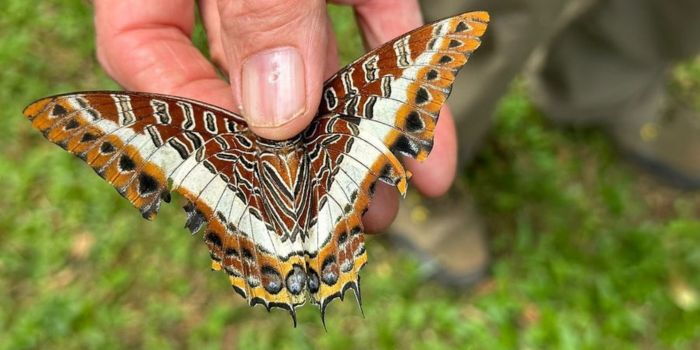A Nairobi man holds what he terms the largest collection of preserved African butterflies in the world, containing over four million butterflies.
These are butterflies that have been preserved to maintain their features and are stored in wood casts with glass tops for viewing. Of the four million butterflies in his sanctuary, 1.2 million are preserved this way. The over one million specimens are pinned in 9,500 boxes.
The collection includes a butterfly worth about 8,000 USD, or about Ksh1,036,720 in the current exchange rates. What started as a hobby for Steve Collins has turned into one of the largest studies of African butterflies.
Steve Collins started collecting butterflies at age five, has published books on the subject matter, and publishes an article in the Journal of Science every month. Collins founded the African Butterfly Research Institute (ABRI), which was established in 1996.
Steve Collins is the founder of the African Butterfly Research Institute (ABRI) in Nairobi.
Photo
Alvin Patterson, Facebook
While speaking to CNN, Collins, 70, revealed how what started as a hobby has turned into over 40 years of collecting, documenting, and studying the creatures. “Yes, it’s the biggest collection of African butterflies in the world,” Collins told CNN’s Larry Madowo.
Collins says that the butterflies fly into the sanctuary of their own accord, with many flourishing in the area. “There is a leaf, and here are the caterpillars living underneath a leaf. We haven’t brought them in. They’ve come in of their own accord,” Collins narrates while holding a leaf from one of the trees in his compound.
However, Collins is now on a different mission. He is attempting to find a buyer for his expensive collection.
“Ultimately, it needs to be available for scientists. This is probably the world’s largest private collection of butterflies. It’s several decades worth of work across Africa,” Collins asserts.
According to the scientist, he has his fingers crossed that a wealthy philanthropist might step in and purchase the collection. For him, he does not want the collection of preserved butterflies separated.
“It would be a pity to break this up when it’s such an entity and it’s 30 or 40 people’s life’s work. And it needs to be tied to a university rather than a museum,” he insists.
Butterflies are crucial for the ecosystem. Just like bees, they are involved in pollination, and they are also an income-generating product. Farmers rear and sell butterfly pupae to global markets for use in exhibitions and butterfly houses.
They also act as tourist attractions in various sanctuaries besides being used in research.
One of the cases holding butterflies at the African Butterfly Research Institute (ABRI) in Nairobi.
Photo
Alvin Patterson


